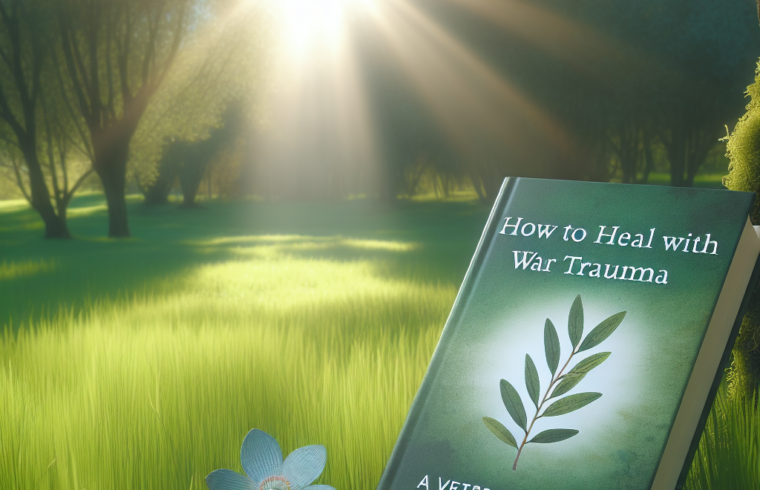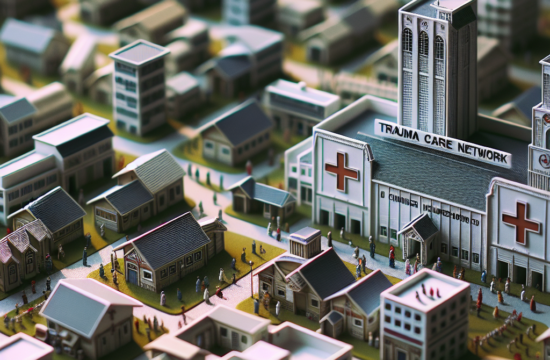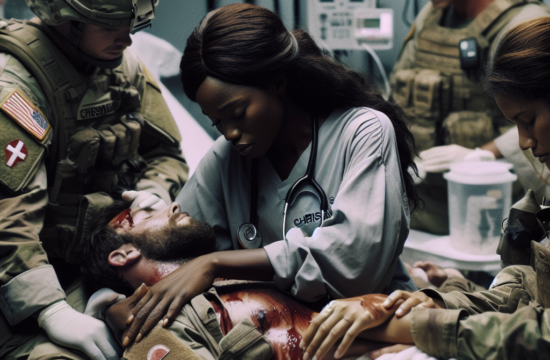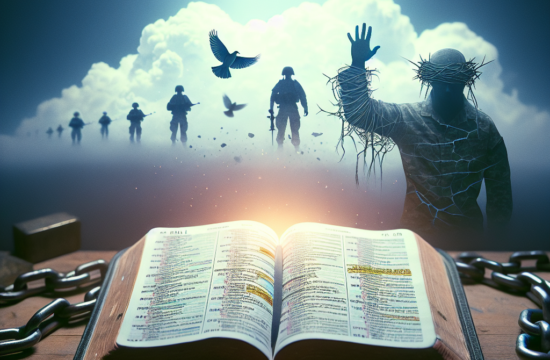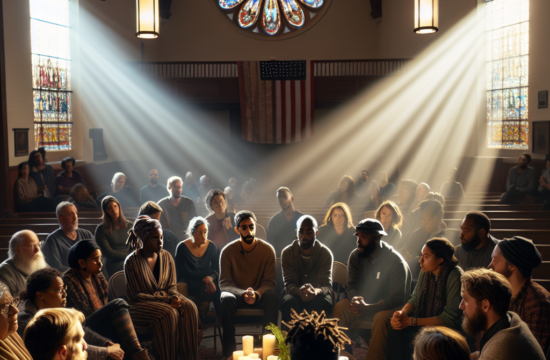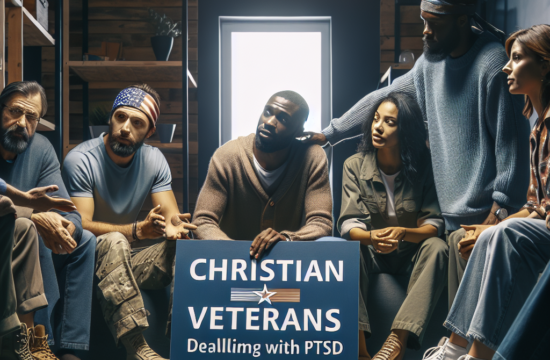Understanding War Trauma
The Nature of War Trauma
War trauma is a beast, often invisible to those who haven’t experienced it. When I first came back, I didn’t even realize the toll it was taking. It’s more than just the obvious—like nightmares and flashbacks. It’s the subtler things too, like feeling disconnected from reality or constantly being on edge.
==> Thank you for reading this post! Click Here If you are looking for support and Victory over PTSD.
One of the biggest challenges is that war trauma affects everyone differently. Some may experience severe symptoms right after they return, while others might feel fine for years before issues start to arise. It’s important to understand this because it helps in acknowledging that there isn’t a one-size-fits-all solution.
It’s also about understanding that it’s okay to seek help. Feeling overwhelmed or struggling is common, but these feelings don’t have to define you. By understanding war trauma, you start to gain control over it, rather than letting it control you.
The Impact on Daily Life
War trauma can seep into every aspect of your daily life. For me, it made simple tasks like going to the grocery store feel like climbing a mountain. The first step in healing is to recognize how trauma manifests in your routine: Are you avoiding social situations? Do you struggle with concentration?
The constant feeling of hyper-vigilance was something I had to adjust to. It’s like always being on high alert even in safe environments, which can be exhausting. This level of stress can affect sleep patterns, work performance, and relationships.
Once you start mapping out the impact, it becomes easier to tackle each issue. Journaling my daily experiences helped me understand triggers and patterns, making it easier to develop coping strategies specific to my needs.
Recognizing the Signs
Recognizing the symptoms of war trauma is crucial, and it’s not just about acknowledging flashbacks or nightmares. It’s about seeing the more subtle signs as well, like irritability, an increasingly negative outlook on life, or feeling numb.
I found that the more I paid attention to my body and mind, the more I noticed patterns. For instance, my heart rate would spike during certain activities or I’d suffer from sudden, inexplicable anxiety. By understanding these signs, you can start to manage them better.
It’s worth mentioning that recognizing these signs is a continuous process. As your trauma evolves, so will the manifestations and their impact on your life. Staying vigilant about your mental health is key to long-term management and healing.
Seeking Professional Help
Importance of Therapy
Therapy can seem daunting at first—opening up to a stranger about deeply personal experiences isn’t easy. But trust me, seeking professional help is a vital step in the healing journey. When I started therapy, it felt like peeling back layers of an onion. Painful, sure, but liberating.
A good therapist will guide you through processing traumatic experiences in a safe space, allowing you to express feelings you might have buried. Therapy provides tools to cope with stress and emotion, essentially teaching you to navigate your mental landscape better.
The key is to find a professional who understands trauma and has experience working with veterans. This ensures that the methods and techniques used are tailored to your needs, making your road to recovery more effective.
Types of Therapy
Not all therapy is created equal, and what works for one person may not work for another. The types of therapy commonly recommended for war trauma include Cognitive Behavioral Therapy (CBT), Eye Movement Desensitization and Reprocessing (EMDR), and Prolonged Exposure Therapy.
CBT focuses on altering negative thought patterns. For me, identifying and challenging irrational thoughts was incredibly empowering. EMDR, on the other hand, helps process the trauma by reconnecting the mind and body through guided eye movements—which can be transformative.
Prolonged Exposure Therapy involves gradually facing and discussing traumatic memories. It can be intense but helps reduce the power those memories have over you. Explore different options and see what resonates. Sometimes a mix of multiple therapies works best.
Medication as a Supplement
Medications can play a supportive role in managing war trauma. When I finally acknowledged my symptoms, my therapist and I decided to use medication along with therapy. It wasn’t a crutch but a tool that helped stabilize my mood and made me more receptive to therapeutic interventions.
Common medications include antidepressants and anti-anxiety drugs. They can help regulate the chemical imbalances in the brain caused by trauma. However, it’s crucial to have open and ongoing conversations with your healthcare provider to monitor progress and adjust dosages as needed.
Medication isn’t a cure-all and is best used in conjunction with therapy and other holistic practices. For me, this multi-pronged approach was the key to significant and lasting improvement.
Building a Support Network
Connecting with Fellow Veterans
Having a support network, especially connecting with fellow veterans, was a game-changer. There’s a shared language and experience that civilian friends, however well-meaning, just may not fully grasp. Being around others who “get it” can be incredibly validating.
Veterans organizations and support groups provide a sense of camaraderie and understanding. Additionally, sharing experiences with those who have walked a similar path can offer new perspectives and coping strategies. It’s therapeutic to know you’re not alone in this journey.
For me, these connections weren’t just about discussing trauma. They were about rediscovering my identity outside of the military and finding new ways to contribute and engage with the world. It’s about rebuilding your social fabric with people who understand the depth of your experiences.
Family and Friends
Family and friends are your frontline allies, though they may need some guidance on how to best support you. Initially, I struggled with how to communicate my needs to them without feeling like a burden. Open, honest conversations can be eye-opening for both you and them.
Explain your triggers and what helps you manage them. This not only educates your support network but also helps in establishing boundaries and expectations. Your loved ones want to help, and often, they just need a little direction.
Including them in your healing process can also strengthen these relationships. Activities like attending therapy sessions together or group counseling can provide better insights into your experience, making them more effective allies in your journey.
Community Resources
Utilize community resources available to veterans. Many nonprofits and local organizations offer free or low-cost services designed to help you reintegrate and heal. From job training programs to mental health services, there’s a lot out there if you know where to look.
For example, community centers often have resource officers who can guide you to appropriate services. Local libraries sometimes host veteran-focused events and workshops. These resources can be invaluable in providing support and new opportunities for growth.
Also, don’t underestimate the power of volunteering. Giving back to the community not only builds connections but also helps in rediscovering a sense of purpose. For me, volunteering was a way to repurpose my skills and experience to help others, which was incredibly fulfilling.
Self-Care and Personal Growth
Developing Healthy Habits
Self-care isn’t just about bubble baths and relaxation; it’s about developing habits that support your overall well-being. This was a hard lesson for me to learn, but once I did, it made all the difference. Exercise, meditation, and a balanced diet are foundational.
Regular exercise helps release endorphins and reduces stress. Even a simple daily walk in nature can make a huge impact. Meditation and mindfulness practices can help center your thoughts and bring a sense of calm, mitigating symptoms of anxiety and depression.
Don’t overlook the power of a balanced diet. Proper nutrition can significantly affect your mood and energy levels. Eating a variety of healthy foods helps stabilize your metabolism and supports brain function. Think of food as medicine for your body and mind.
Finding New Hobbies and Interests
Reconnecting with old interests or discovering new hobbies can be a form of self-therapy. For me, diving back into old hobbies like woodworking and trying new ones like painting offered an outlet for my stress and emotions. It’s about finding activities that bring you joy and occupy your mind.
Hobbies should be more than just time-fillers. They should engage you and provide a sense of accomplishment. Whether it’s gardening, crafting, or learning an instrument, these activities can provide key moments of peace and fulfillment.
Exploring new hobbies can also lead to meeting new people and forming new connections. This is another way of expanding your support network and furthering your personal growth. New experiences can help redefine your identity in positive ways.
Setting Goals and Pursuing Education
Setting achievable goals is vital. When I started, my goals were small, like making my bed every day or reading for 15 minutes. These small wins build confidence and motivation to tackle larger objectives. Over time, these small steps lead to significant changes.
Pursuing further education is another pathway to growth. Taking classes, whether online or in person, can help shift your focus from trauma to self-improvement. Learning new skills not only enhances your employability but also enriches your personal life.
Setting goals and pursuing education provides structure and a sense of purpose. It allows you to create a new narrative for yourself, separate from your past trauma. It’s a process of continuous growth and self-discovery that can be incredibly rewarding.
FAQs
How long does it take to heal from war trauma?
Healing from war trauma is a highly individual process that varies widely. While some may start to feel better within a few months of counseling and lifestyle changes, others might take years. It’s important to remember that healing isn’t linear and requires ongoing effort and support.
What types of therapy are most effective for war trauma?
Effective therapies for war trauma include Cognitive Behavioral Therapy (CBT), Eye Movement Desensitization and Reprocessing (EMDR), and Prolonged Exposure Therapy. Each therapy has its unique approach, and sometimes a combination of therapies works best.
Are medications helpful for managing war trauma?
Medications can be helpful in managing symptoms of war trauma, particularly when combined with therapy. Common medications include antidepressants and anti-anxiety drugs. Always consult with a healthcare provider to find the most suitable treatment plan.
How can I help a loved one who is dealing with war trauma?
Communication and education are key. Encourage open conversations and educate yourself about their condition. Offer consistent support and consider attending therapy sessions together. Small gestures of understanding and patience can make a huge difference.
Original Source
